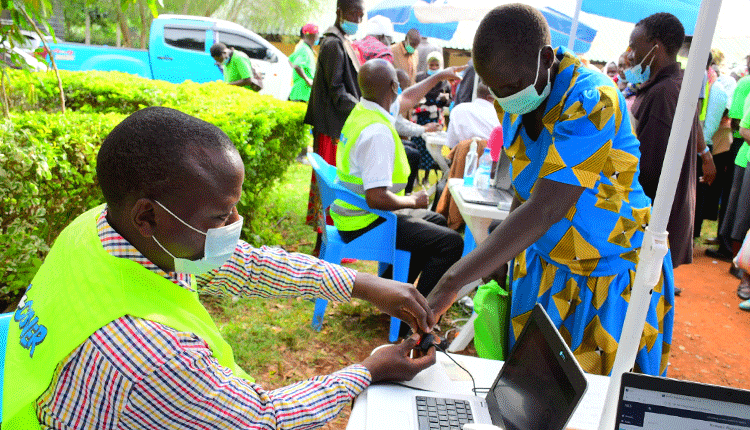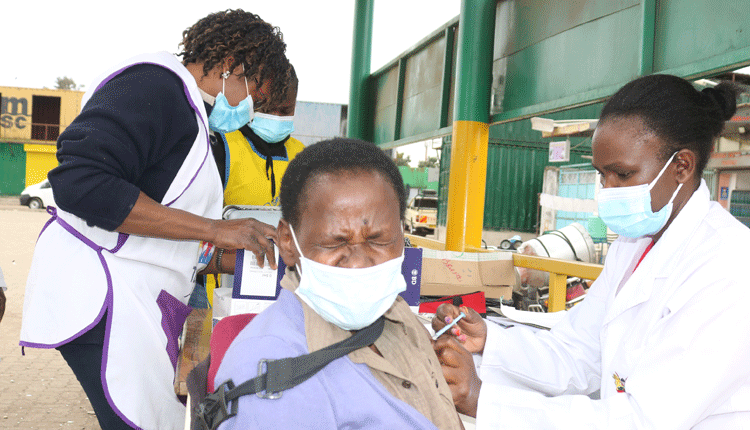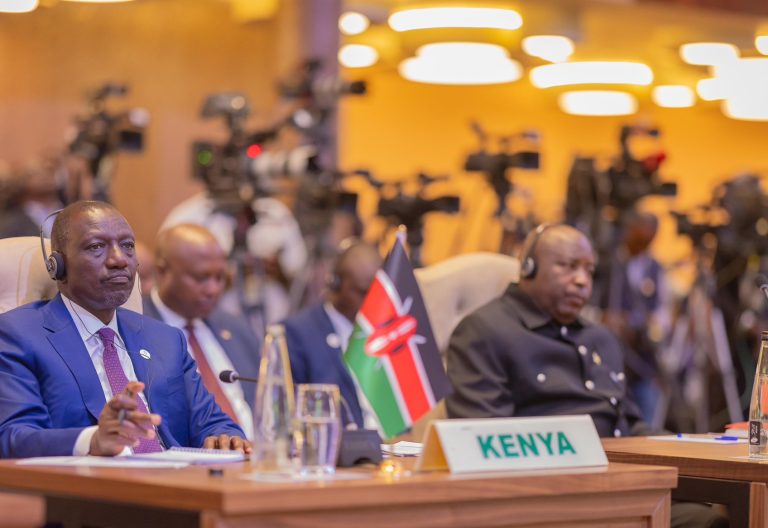Tanzania border closure stirs trade row

Christine Musa, Seth Onyango and George Kebaso
The move by Kenya to shut its borders with Tanzania in a bid to contain the spread of Covid-19 has brewed fresh animosity between Nairobi and Dodoma in what is turning out into a trade war.
Yesterday, the two nations showed no sign of letting up, with Kenya maintaining that its borders are open for movement of goods, but Tanzania, in retaliation, sealed off all its frontier points with Kenya completely.
The Kenyan government took the step following increased cases of Covid-19 imported from Tanzania amid regional fears that Tanzania’s casual approach to the disease was posing a health risk to her neighbours.
Local consumers are bound to bear the brunt of the simmering diplomatic tiff, with the cost of food and other commodities expected to skyrocket.
Kenya imports vegetables, oil seeds, rice, wheat, textiles and clothing, hides and skins, paper and paperboard, footwear, wood, plastic and rubber, among other products, from Tanzania.With the restricted cross-border movement, supply will be disrupted and Kenyans will be forced to dig deeper into their pockets.
According to the Economic Survey 2020, the volume of trade between Kenya and Tanzania stands at around Sh65 billion.
Trading partners
Kenya exported goods worth Sh33.7 billion while Tanzania’s made up 27.6 billion making it one of the country’s biggest trading partners in East and Central Africa.
But even as the row escalates, Health Cabinet Secretary Mutahi Kagwe and his East African Community counterpart Adan Mohamed yesterday said the closure of the Tanzania border saved the country from more coronavirus infections since a total of 289 drivers had been turned away.
However, the duo extended an olive branch to Tanzania, saying they are ready to resolve any differences and misunderstandings that the border closure might have occasioned.
“Imagine if we hadn’t turned away those truck drivers who tested positive at the border, they would be roaming around and the rate of infections would be high,” said Kagwe, adding that the measures were taken in agreement with other East African states.
Adan downplayed the move by Tanzanian authorities to block Kenyans from entry, saying only 5-7 trucks had been stopped.
“There are isolated cases and we are going to address them with our counterparts,” he said.
Speaking separately, Rift Valley regional commissioner George Natembeya appealed to Tanzanian authorities to work with their Kenyan counterparts to fight the spread of the Covid-19.
Speaking during a visit to the border town of Angata Barikoi Ward in Narok yesterday, he said joint efforts would ensure a coordinated response to the virus.
In Tanzania, Kenyan ambassador Dan Kazungu went on a fire-fighting mission to quell the situation and assured that the border issue will be resolved.
A day after President Uhuru Kenyatta closed borders with Tanzania and Somali to curb imported cases of Covid-19, Tanzania, in a quick rejoinder, banned entry of Kenyans trucks into the country.
Tanga provincial commissioner Martine Shigela warned that no Kenyan trucks would be allowed into their country, arguing that Kenyan drivers are exporting the virus into Tanzania.
Shun Kenyans
Shigela expressed disappointment in the manner the Kenyan government health officials were conducting Covid-19 tests, saying they are taking too long leading to losses in terms of fresh produce in transit.
He also urged Tanzanians to avoid from doing business with Kenyans and focus on other business partners.
Before the closure of the border, cross-border movement at Namanga, Shompole and Tarakea points continued as usual amid uproar from Kenyans who feared a possible spread of the virus.
Namanga border ordinarily registers hundreds of trucks into the country. Hundreds of people crisscross the border to do business.
On several occasions Namanga residents have protested, calling for closure of the border to curb the spread of the virus.
While residents celebrated the move by Uhuru, their Tanzanians counterparts were quick to accuse Kenyans of malice and bias.
“Kenyans perceive us as Covid-19 carriers and they have now influenced leaders to harass us and block us from business,’’ said Ahmed Zuia, a Tanzanian.
Livestock herders were quick to laud the move, saying they have always been shortchanged by their Tanzanian counterparts.
Ilbisil market is a huge market for Tanzanian herders who bring at least 600 cattle and over 2,000 sheep and goats on a market day. Tanzanian herders who only pay Sh50 per cattle and Sh30 per goat or sheep as entry free have always enjoyed an upper hand in the market over their Kenyan counterparts due to their foreign exchange value.
Tanzanians sell their livestock cheaply. On several occasions Kenyan herders have unsuccessful tried to block Tanzanians over unfair business competition but the East Africa Community bilateral trade regulations have not given them legal grounds on the matter.
For instance a cow which a Kenyan herder sells at Sh50,000, a Tanzanian will sell at Sh30,000.
On the other hand Kenyan herders do not sell livestock in the Tanzanian markets due to the low currency exchange rate.
Ilbisil, Maili Tisa, Loitoktok and Namanga towns markets are dominated by Tanzanians who mainly sell fresh produce and clothes.
It is not the first time Kenya and Tanzania authorities are locking horns. In 2017, Tanzania burnt 6,400 chicks and 5,000 day-old chicks in 2018 saying they were illegally imported into the country.














